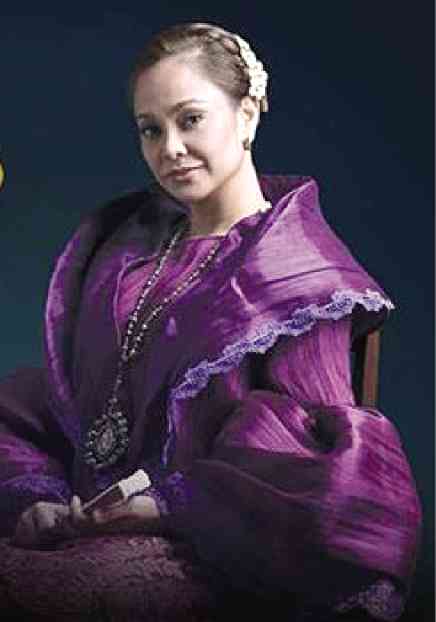Sooner than generally expected, the Jose Rizal bio-drama, “Ilustrado,” concluded its run on GMA last week. So, how did the well-meaning series do, all told?
On the plus side, some of its visualizations were memorable, especially its early incursions into the mystifying and evocative realm of “magic realism.” In addition, some of its digitally produced or enhanced visuals, particularly those set in Europe, were moodily atmospheric.
At times, however, the digital creativity went “over,” like the alarming scene in which the snooty, matapobre character played by Jaclyn Jose was burned (to a ferociously flaming crisp!) at the stake.
In terms of performances, Kylie Padilla as Leonor Rivera and Eula Valdez as Rizal’s mother had some believably anguished “moments”—made even more welcome by the generally predictable portrayals turned in by other members of the stellar cast.
Pivotal figure
Since Paciano Rizal was such a pivotal figure in his younger brother’s life and political persuasion, we found his pat depiction in the series particularly disappointing. Rizal’s antagonist in Europe was also kneejerk-nasty, and most of the young actors tapped to portray Rizal’s fellow “Indios Bravos” turned in shallow portrayals—and looked distinctly uncomfortable in their European duds.
Also “off” was the production’s use of “period” mustaches, beards, hats, canes, etc.—in other words, not enough time and attention to detail was expended to make the historical and European scenes look “lived-in.”
The most disappointing portrayal was turned in by Alden Richards as Rizal. His relative failure is only partly due to miscasting (a tisoy actor for a most iconically Pinoy role). It’s also clear that, despite his research into and avowed “passion” for the role, the actor couldn’t vivify it with suitable insight and understanding.
Answers
To make things worse, the production itself couldn’t get its act together in terms of theme, meaning and insight. Why did Jose Rizal end up as the country’s National Hero and seminal change agent? The series found some answers in his childhood, the oppression of his family by the cruel colonizers, his difficult character-forming challenges as an adult in Europe, etc.
But, there were too many distracting details and detours into romantic substories and “droll” anecdotes that did entertain the peanut gallery, but also made it hard for the series’ most important insights to organically and dynamically emerge.
The series’ abrupt ending wasn’t of much help in this regard, either: All too soon, Rizal was already walking slowly to his death, in the formulaic finale favored by the cumulative rages and resonances, many other Rizal biopics—and that was it. What of the hidden historical meanings and consequences finally made clear for today’s viewers?
We got a lot of Rizal, the child and then the man, but not enough of why his story must be told for the umpteenth time, because this production has something important and insightful to share.
